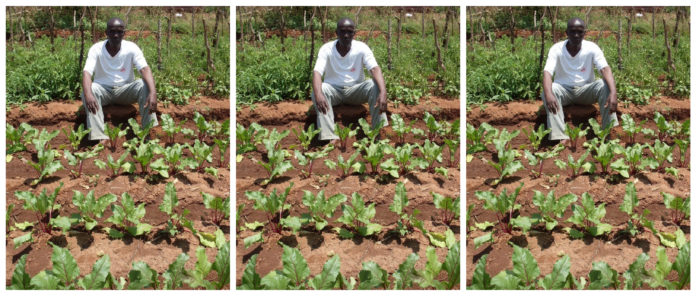
Johannes Mamogale (80) started his vegetable garden after he was retrenched 20 years ago. In the beginning, farming was all about putting food on the table. The garden soon expanded into a thriving operation. This allowed him to supply vegetables to both street hawkers, local villagers and emerging businessman customers.
“I identified an unused piece of land owned by the FetakgomoTubatse municipality and started using it,” said Mamogale. He grows vegetables such as tomatoes, spinach, cabbage, onion, green beans, sugar cane and beetroot. Mamogale also grows chilies that he grinds into a fine powder to sell as spice.
Mamogale said planting your own veggies from the garden is cheaper and healthier. “Planting and harvesting our own vegetable gardens helps provide the best vegetables ever tasted before,” he said.
RELATED:
Oppie Yaart is a healing space and community garden
“I have noticed that vegetable produce bought at the grocery store tastes a bit bland, tasteless. While the ones I grow are like an explosion of flavor in my mouth,” Mamogale said.
He gets professional advice from local extension officers from the department of agriculture. Mamagale then shares his experiences with other farmers whenever he can. He learnt that each area has its own climate and soil type that nourishes certain types of vegetable produce better than others.
“I have no formal training but showing interest with passion, hard work and determination have served me well,” he said. Grocery store vegetable produce comes in bulk from farms. They are full of chemicals and hormones and pose a serious health risk to customers.
RELATED:
By-laws that govern urban farming need to find common ‘soil’ for food security
“When you grow your own vegetable garden you can choose what type of vegetables to plant, so you are never in short supply of your favorite. It is the best way of saving money. It gives a peace of mind knowing that each vegetable has the full nutritional value that it is supposed to have,” he said.
Meanwhile it takes some time for the garden to begin bearing fruits. He has plans to expand his business. This is provided he can get money to install sprinklers and proper fencing to keep out stray animals, and buy pesticides.
“I need chemicals that will help me fight disease but they are very expensive. In fact, farming is an expensive business to run,” said Mamogale.
RELATED:
These startups and community projects are providing food during COVID-19
In the meantime, he wants to send soil samples to a testing laboratory. This is so he can determine the types of crops and fertilisers that would best suit the land on which he’s working.
“My dream is to expand what is really just a large vegetable garden into a proper farm. I then want to own a vegetable market of my own,” he said.
But he realises that hard work lies ahead.
“There is no financial gain without pain, and I’ll do what it takes, as long as I am still alive, healthy and kicking. There are rewarding benefits of growing your own garden. Such as environmental sustainability, less expensive grocery bills, better tasting, healthier foods and harvesting vegetables while they are fresh,” Mamogale added.
RELATED:
Nazeer Sonday on the need for protecting agricultural land








